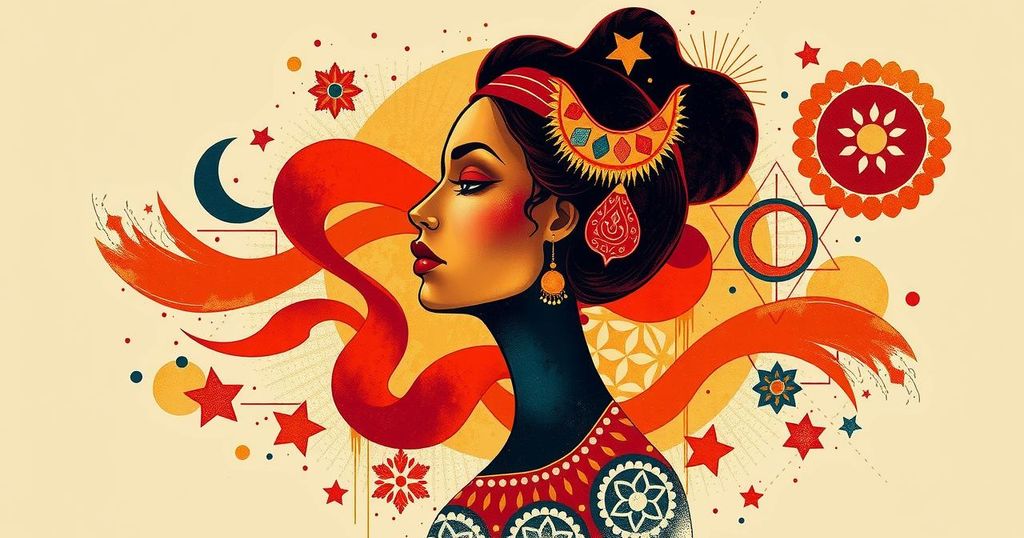This article discusses the status of women in Morocco post-King Mohammed VI’s speech in 1999, highlighting ongoing issues such as low political representation, economic challenges, and persistent gender disparities. Despite progress in legal frameworks and societal awareness, women are still underrepresented in politics and the workforce. Collective efforts are necessary to empower women and enhance their roles in various sectors.
In a foundational speech on August 20, 1999, King Mohammed VI posed a critical question regarding societal progress: how can a society flourish if the interests of women, who constitute nearly half of its population, are disregarded? This query underscores the vital role women play in both education and occupation, highlighting a commitment to improving their rights while recognizing the ongoing injustices they face due to neglect.
The issue at hand encompasses various dimensions, including constitutional discrepancies, ineffective legal frameworks, cultural heritage, and a deeply ingrained patriarchal mindset. Assessing the current status of women in Morocco is essential, especially considering the disheartening ranking of 136th out of 146 in the Global Gender Gap Ranking for 2022, attributed to insufficient political interest in women’s issues and glaring inequalities in poverty, literacy, and employment.
A 2023 study by the Moroccan Organization for Family Justice revealed that 86.32% of women have never pursued office, with only 8.49% affiliated with political parties. In the latest elections, women constituted 24% of parliamentary deputies and 38.5% of regional council members, despite comprising 54% of the total votes cast, indicating a voting pattern that favors male candidates, thus marginalizing females in politics.
Significant strides toward women’s political empowerment have been made, including constitutional provisions that ensure equality in various facets, alongside Morocco’s ratification of international conventions advocating for gender equality. Nevertheless, women’s political representation lacks behind global averages, revealing a disconnect between constitutional commitments and the actual political landscape.
Various barriers contribute to this disparity, including societal perceptions of politics as daunting, a lack of confidence among women regarding their public engagement, and cultural beliefs that confine women to domestic roles. Additionally, the negative electoral climate, characterized by corruption and adverse practices, prevents women from participating fully in political life.
The prevalence of a patriarchal mindset, alongside the inadequate implementation of laws, often results in women’s exclusion from political representation, exemplified by the recent all-male election of the House of Counsellors’ leadership, despite constitutional mandates for equality in political participation. Developing a culture of democracy and equality is crucial, as it lays the groundwork for improved women’s rights and empowerment in governance.
Women’s integration into the economic sector remains a challenge, with a historically gradual increase in representation in government positions. Over the years, the appointment of female ministers—now numbering seven—marks a notable advancement, yet only 19.86% of ministerial roles are occupied by women. The overall employment rate for women stands at 19.5%, with significant wage inequalities and higher unemployment rates compared to men.
While it is undeniable that progress has been achieved through the concerted efforts of women’s movements and supportive stakeholders, substantial challenges persist. Addressing these issues is vital for enhancing women’s rights and ensuring equitable representation in all societal aspects. Increased female participation can drive economic growth while promoting ethical governance, as demonstrated by findings from the World Bank’s “Corruption and Women in Government” report.
In summary, the progress of women’s rights in Morocco is marked by both advancements and persistent challenges. The need for comprehensive reforms and cultural shifts remains paramount to elevate women’s roles in political and societal spheres. Efforts to empower women must be collective, targeting education, political engagement, and economic opportunities to ensure their rightful place in shaping Morocco’s future. The significance of women’s participation extends beyond rights to encompass broader developmental impacts, reaffirming the importance of fostering equality and representation.
Original Source: www.moroccoworldnews.com






